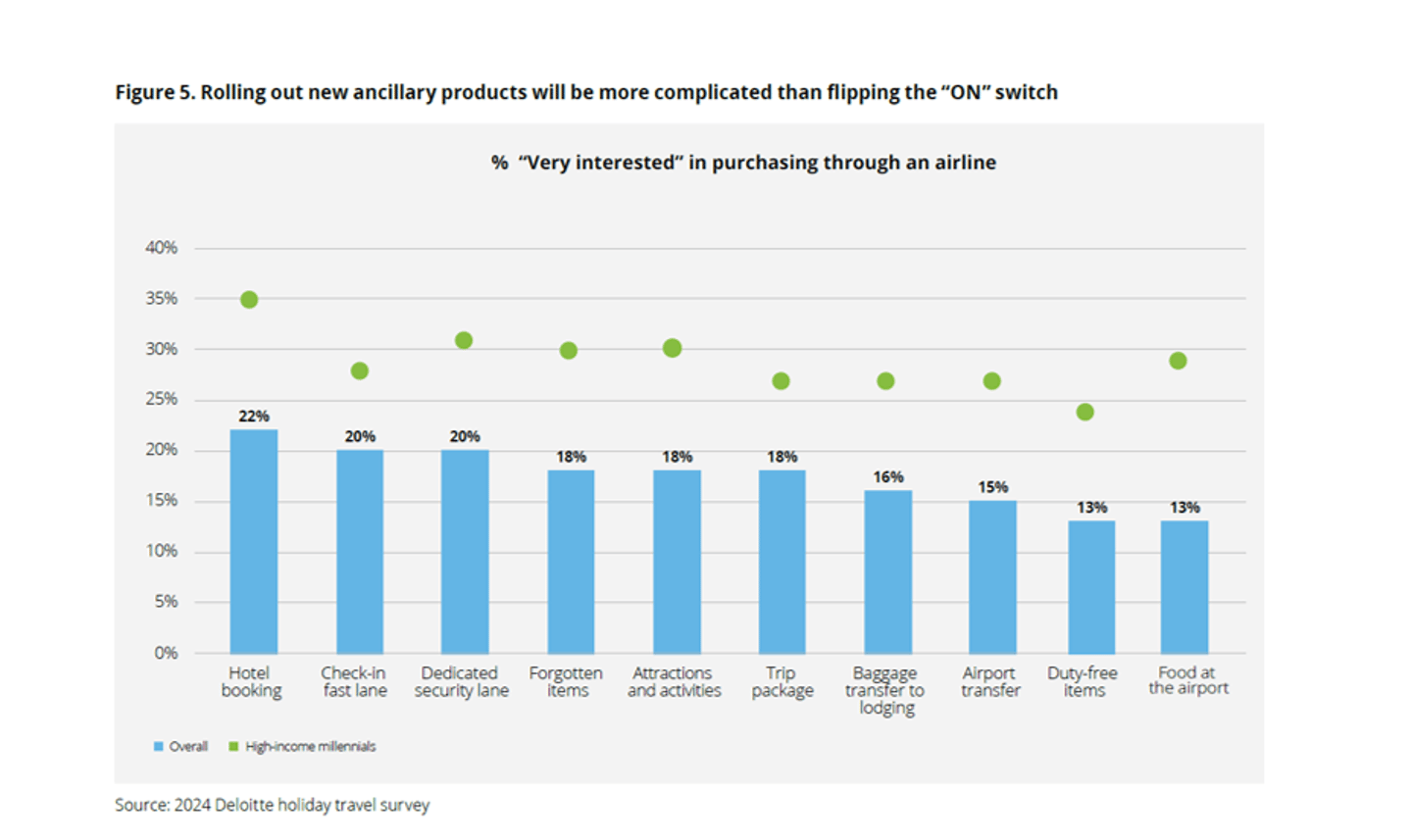AI Could Change Everything, Except Hospitality’s Human Touch
As much as we hear “AI could change everything,” there are some hospitality services consumers will want from humans no matter how good AI gets.
As travel continues its robust post-pandemic rebound, new AI models and tools are constantly landing on our screens. Two years of experimentation, both by providers and travelers, has begun to reveal the most promising near-term opportunities for the technology.
Navigating AI for Trip Planning
Using GenAI for trip planning is gaining interest among travelers, as the share of consumers using the technology for trip planning doubled from 8% to 16% from October 2023 to October 2024, according to Deloitte’s 2025 travel industry outlook. If you exclude boomers, whose adoption remains in the mid-single digits, usage of GenAI for trip planning climbed from 10% to 21% over the same period.
Among millennials with income of $100,000 or more, that rate jumped to 29%. Their preferred use case for the technology is searching destinations based on trip type, but nearly half of users say they also use it further down the funnel to find accommodations.
Of all the respondents who used GenAI in trip planning, more than 40% actually followed through and booked accommodations recommended by the tools.
Still a Long Way to Go
Although all of the big online travel agencies have GenAI tools, most have yet to create tactics that take full advantage of the technology. They often lack image integration, personalization, and seamless connection to real-time bookable product. But the race is on. Meaningful interface change is coming.
While automation has the potential to save travelers time or enable more fun and comfort, most still expect the human touch along their journeys. Many prefer some human interaction across processes like check-in and getting local recommendations.
Nearly half (46%) of travelers still prefer the hotel check-in process to be predominantly or only human vs. digital. About a third feel the same about both room service (35%) and getting local recommendations (37%).
Micro Merchandising
GenAI will have another important role in hospitality, helping providers learn which little extras they can charge for, sometimes called attribute-based selling. To gather some baseline data, Deloitte measured traveler interest in purchasing 10 different “ancillary products” through an airline.
The share of respondents saying they were “very interested” in purchasing various products ranged from 13% to 22%, indicating the rollout of these products would be complex. Hypothetical purchases included hotel booking through their airline (22% of respondents were very interested), a trip package (18%), and baggage transfer to lodging (16%). High-income millennials were more often very interested in these services (in the 24% to 35% range).
Interest varies for different types of travelers, indicating a need for smart segmentation and personalization. High-income millennials are particularly receptive to extras, as are “laptop luggers,” those travelers bringing work along on their vacations. Among boomers, fewer than one in 10 say they are “very interested” in nearly all options included in the survey. Their receptivity was highest for items that could smooth the day of travel (14% were very interested in a dedicated security lane, 12% for expedited check-in).
In all of these use cases, GenAI has ample room to improve and grow as it helps brands capture more travelers’ attention, guide them to preferred partners, and someday serve up just the amenities they might like – and pay for. However, the human connection has always been a part of what helps hospitality providers stand out. Striking a balance will position providers for long-term success in an increasingly digital world.
ABOUT THE AUTHOR
Eileen Crowley leads Deloitte & Touche LLP’s US Audit & Assurance Transportation, Hospitality & Services practice. She has a history of serving large, complex multinational companies on Securities and Exchange Commission (SEC) reporting matters, mergers and acquisitions, information technology, and capital transactions.
Please see www.deloitte.com/us/about for a detailed description of our legal structure. Certain services may not be available to attest clients under the rules and regulations of public accounting.
This publication contains general information only and Deloitte is not, by means of this publication, rendering accounting, business, financial, investment, legal, tax, or other professional advice or services. This publication is not a substitute for such professional advice or services, nor should it be used as a basis for any decision or action that may affect your business. Before making any decision or taking any action that may affect your business, you should consult a qualified professional advisor. Deloitte shall not be responsible for any loss sustained by any person who relies on this publication.



